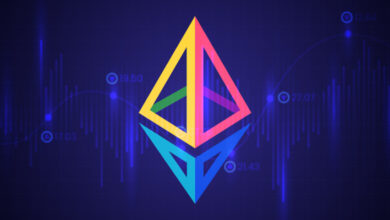Microsoft Launches its Decentralized Digital Identity on Bitcoin

Microsoft recently announced that it has carried out a huge step in its decentralized identity space. Mr. Daniel Buchner, discussed this one their website in detail. The explanation starts from work that was done in groups such as internet identity workshop, rebooting the web of trust and with that decentralized identity gained momentum.
According to the post, Decentralized Identifiers (DID) is the foundational technical component that makes decentralized identity possible. Unlike centralized identifiers commonly used today (email addresses, usernames, etc.), DIDs are generated, owned, and controlled by individuals, not companies or other centralized entities. There are many different approaches to creating DID protocols, but they all revolve around the same concept: user-owned unique identifiers tied to a set of cryptographic keys and routing endpoints. While it’s not difficult to create a basic DID protocol, creating a robustly decentralized and scalable network without resorting to trusted validator nodes, utility tokens, and other mechanisms, is incredibly challenging.
In 2019 it became clear to Microsoft the technology was something worth investing in, so they began developing a Sidetree prototype within the Decentralized Identity Foundation (DIF). Through the tireless efforts of collaborators from many areas of the DID ecosystem, Sidetree is in the final stages of being codified into a formal specification within DIF’s Sidetree Development & Operating Group. Collaborators like Transmute (developers of the Sidetree-based method, Element), SecureKey, Mattr, Consensys, and many others, have been instrumental in shaping the Sidetree protocol.
As such ION will not be om Bitcoin mainnet for its public beta. ION is an open, public, permissionless ‘Layer 2’ network built on open source code that anyone can review, run, and contribute to. From the very start, ION has been developed as a decentralized network designed to operate independently of centralized parties and trusted intermediaries, including Microsoft. ION doesn’t rely on special utility tokens, trusted validator nodes, or additional consensus mechanisms; the deterministic progression of Bitcoin’s linear block chronology is the only consensus it requires. The core promise of DID technology is to empower all individuals and entities with ownership and control over their identities, which aligns well with our mission of empowering every person to work, play, and achieve more. To deliver on that promise, we have chosen a different path from some of the more centralized approaches to DID technologies—and we believe ION exemplifies that choice.
ION is an open source, Apache 2 licensed project developed in DIF, which you can contribute to via the ION and Sidetree repos on GitHub. The ION reference implementation is comprised of the following key components:
As an open, public, and permissionless network, ION does not rely on privileged validators or trusted authorities of any kind – anyone can run a node to participate in the network.
As a next milestone for ION Microsoft will be launching the final v1 version of ION this fall. Microsoft invites all to join Decentralized Identity Foundation (DIF) and the wider identity community to ensure this work reflects the needs of every stakeholder.





